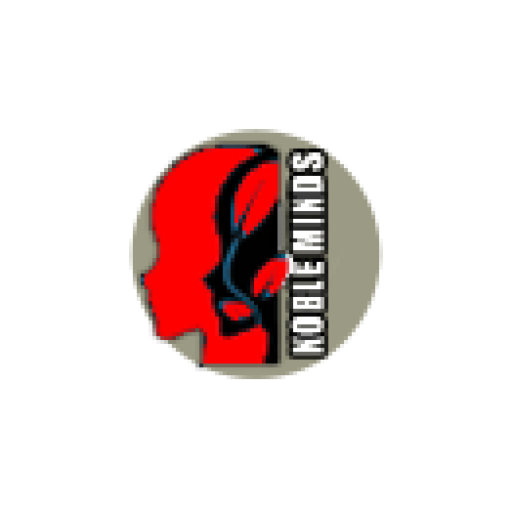Mental health conditions like depression, anxiety, bipolar disorder, schizophrenia, and ADHD can significantly impact daily life. While therapy, lifestyle changes, and support systems play a crucial role in treatment, medication is often a key component in managing symptoms effectively.
As a psychiatric mental health nurse practitioner, I understand that starting medication can feel overwhelming. Many people have concerns about side effects, dependence, or whether medication is truly necessary. This post will help you understand how psychiatric medications work, why they are prescribed, and what to expect when starting treatment.
Why Is Medication Important in Mental Health Treatment?
Just like a person with diabetes may need insulin or someone with high blood pressure may take medication to regulate it, mental health conditions often require medical intervention to restore balance. Here’s why medication is important:
✅ Stabilizes brain chemistry – Many mental health disorders are linked to imbalances in neurotransmitters (brain chemicals like serotonin, dopamine, and norepinephrine). Medications help regulate these chemicals to improve mood, focus, and emotional stability.
✅ Reduces severe symptoms – Disorders like schizophrenia, bipolar disorder, and severe anxiety can cause distressing symptoms that make daily life difficult. Medication helps manage these symptoms, making therapy and other treatments more effective.
✅ Prevents relapses – For chronic conditions like bipolar disorder, depression, and schizophrenia, medication can prevent relapses and help maintain stability.
✅ Improves overall quality of life – With the right medication and dosage, many individuals experience better sleep, improved concentration, fewer mood swings, and reduced distress.
Common Types of Mental Health Medications
There are several classes of medications used to treat mental health conditions. The type prescribed depends on your diagnosis, symptoms, and individual needs.
1. Antidepressants
Used for depression, anxiety disorders, PTSD, and OCD, these medications work by increasing levels of serotonin and/or norepinephrine in the brain.
💊 Examples:
- SSRIs (Selective Serotonin Reuptake Inhibitors) – Prozac, Zoloft, Lexapro
- SNRIs (Serotonin-Norepinephrine Reuptake Inhibitors) – Effexor, Cymbalta
- Atypical antidepressants – Wellbutrin (can also help with ADHD and energy levels)
2. Mood Stabilizers
Primarily used for bipolar disorder to prevent extreme mood swings.
💊 Examples:
- Lithium (a gold standard for bipolar disorder)
- Valproate (Depakote)
- Lamotrigine (Lamictal)
3. Antipsychotics
Essential for managing schizophrenia, severe bipolar disorder, and psychotic symptoms.
💊 Examples:
- First-generation (typical) antipsychotics – Haldol, Thorazine
- Second-generation (atypical) antipsychotics – Abilify, Seroquel, Risperdal
4. Anti-Anxiety Medications
Used for generalized anxiety disorder (GAD), panic disorder, and PTSD.
💊 Examples:
- Benzodiazepines (for short-term relief) – Xanax, Ativan, Valium
- Buspirone (non-addictive, long-term anxiety treatment)
5. Stimulants & Non-Stimulants for ADHD
Used to improve focus, impulse control, and attention in ADHD patients.
💊 Examples:
- Stimulants – Adderall, Ritalin, Vyvanse
- Non-stimulants – Strattera, Intuniv
What to Expect When Starting Medication
Starting psychiatric medication is a process. Here’s what you should keep in mind:
🕒 It takes time to work – Some medications, like antidepressants, may take 2-6 weeks before you feel the full effects. Others, like anti-anxiety meds, can work faster.
⚖️ Finding the right dosage is key – Everyone’s body reacts differently to medication. A psychiatric professional may adjust your dosage to find the right balance.
⚠️ Side effects are possible but often temporary – Some people experience mild side effects like nausea, drowsiness, or headaches, but these usually improve as your body adjusts. If side effects are severe, your provider may switch your medication.
🔄 Consistency is important – For best results, take your medication as prescribed. Stopping suddenly can cause withdrawal symptoms or a relapse.
Common Myths About Psychiatric Medication
❌ “Medication will change my personality.”
✅ Medication helps restore balance; it doesn’t change who you are. Many people actually feel more like themselves when their symptoms are under control.
❌ “I will become addicted.”
✅ Most psychiatric medications (except for some anxiety meds like benzodiazepines) are non-addictive and safe for long-term use under medical supervision.
❌ “If I start medication, I have to take it forever.”
✅ Some people take medication short-term, while others need it long-term. The goal is to help you function at your best, whether that means staying on medication or tapering off when appropriate.
Medication + Therapy = The Best Approach
Medication alone is not a cure—it’s part of a comprehensive treatment plan. Combining medication with therapy, lifestyle changes, and self-care leads to the best long-term outcomes.
At Noble Minds, we provide a holistic and personalized approach to mental health treatment. Whether you’re struggling with anxiety, depression, bipolar disorder, or schizophrenia, we are here to help you find the right balance of medication and therapy to improve your well-being.
Are You Ready to Take the Next Step?
If you’re considering medication for your mental health, let’s talk! Book a consultation today, and let’s find the best treatment plan for you.


